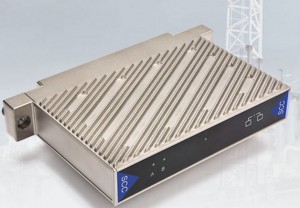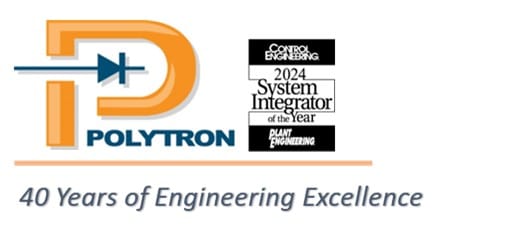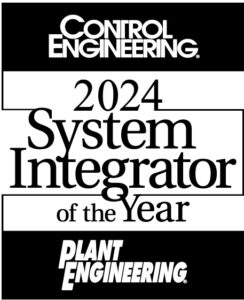 With the release of their new automation platform, Bedrock Automation is challenging industry standards by rethinking many of the assumptions that have become standard among the big automation controller suppliers. They are taking advantage of massive improvements in computing power to build an automation system based on the modern state of the art in chip technology, without being tied down by legacy products. The result is a system that is secure, reliable, and powerful.
With the release of their new automation platform, Bedrock Automation is challenging industry standards by rethinking many of the assumptions that have become standard among the big automation controller suppliers. They are taking advantage of massive improvements in computing power to build an automation system based on the modern state of the art in chip technology, without being tied down by legacy products. The result is a system that is secure, reliable, and powerful.
Security was the first goal in designing the system. All of our customers are concerned about security, and it is achieved in many different ways – firewalls and VLANs for network security, plant security to protect physical access, program logging software to provide an audit trail for authorized changes. But since Stuxnet so notoriously targeted a critical control system it has been clear that all of that is not enough if the processor itself is not secure. Bedrock has designed a system with cryptographic security built in, specifically designed to prevent all the attack vectors their experts could find, but also robustly designed to make it difficult to exploit even those that were not specifically considered. The core of the system runs a military grade real-time operating system, and encryption protects and validates every aspect of the processor’s communication and I/O.
As a longtime security skeptic, I went into their training assuming that it could not possibly be as good as they claimed. But I came away convinced – not that a system using their controller will never be penetrated, but that it is orders of magnitude less likely. And when the core of a system is that hardened, attackers will often start looking elsewhere.
Reliability was achieved by over engineering everything. The case of the processor and the power supply are also the heatsink – meaning no fans to fail, or openings for metal shavings to fall into. Everything runs a little bit warmer on the outside, but that actually reduces the thermal gradients on the components near the processor, reducing flexing and the chance of connection failure over time. It also allows them to run in much warmer environments – up to 80C depending on the backplane and power supply used. The wireless backplane includes separate redundant paths to each I/O slot (which also improves speed). And the chips being used are all designed by Bedrock and built by its parent company, a semiconductor manufacturer. So no sudden obsolescence required when a third party supplier stops building a particular component.
Power is a result of using modern chip design adapted to the industrial environment. By running an ARM processor at the core, Bedrock is able to take advantage of the massive development that has gone into making computers and smartphones faster every year. 512MB of RAM and 32GB of flash makes the offerings from competitors look paltry. Gigabit ethernet is standard, and built into the processor – using SFP modules, so with a quick switch fiber or copper can be used to directly connect. All of that translates into very fast program execution times, with huge amounts of I/O at extremely high speeds. The I/O itself is also very capable and flexible – starting with the universal I/O module, with every point programmatically adjustable to act as anything from a digital inputs to a HART capable analog outputs.
One notable downside for companies used to ladder logic; the software support for ladder logic is not amazing. The software used to write programs for this hardware is based on the Codesys IDE – which is an excellent product, available without any licensing costs. It supports ladder logic, but as with many European software platforms it feels like a second class citizen. Structured text is the preferred environment, with sequential function chart close behind. That will require some retraining, or the use of the inferior ladder editor.
The system is well designed, and the specs are perfect to fit large scale and very demanding applications. But no one is comfortable moving on a large scale to a product they haven’t tested. So the opportunity is here – if you are interested in seeing if this will work in your environment, Polytron, a Certified Bedrock Automation Solution Partner, is ready to work with you towards implementing a more secure, reliable and powerful control system.
In addition to Bedrock Automation, Polytron is also a certified solution partner for the industry’s leading technology providers.
About the Author: Jeremy Cox, P.E. is a Professional Engineer with 13 plus years experience providing electrical, automation and engineering services within the manufacturing and packaging industries, including consumer products packaging, bottling lines, food packaging, paper base machines and converting lines, and distribution. He holds a B.S. in Electrical Engineering from Georgia Institute of Technology, is a Cisco Certified Network Associate (CCNA) and is Bedrock Automation Certified.



